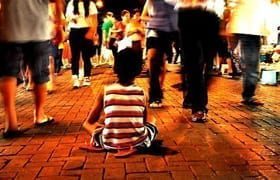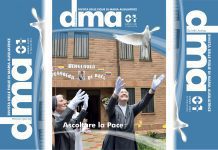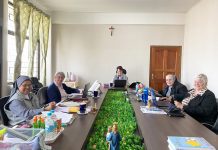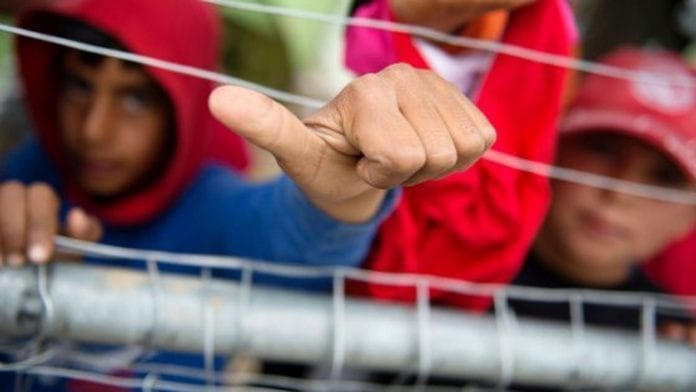
Rome (Italy). On April 24, 2018, Rome hosted a workshop organized by the International Union of Superiors General (UISG) on the theme: “Protection of Minors…Guidelines and Protocols for Religious Institutes”. The day, in which some FMA collaborators of the Youth Pastoral Sector participated, was animated by Dr. Gabriel S. Dy-Liacco, Psychotherapist and member of the Vatican Commission for the Protection of Minors and Vulnerable Adults.
The presence of women and men religious, and of consecrated lay persons made the sharing interesting and of reciprocal enrichment on the common commitment to justice and mercy, primary responsibility of all those who have received from the Lord the vocation to dedicate their life as service, which includes the attentive and loving protection of children, young people, and vulnerable persons.
The reflection began with the analysis of how the Catholic Church has lived in the course of history to the present, the safeguarding of minors between prevention and response to abuses. The attentive reading of Church documents, especially the texts, discourses, and choices of Pope Francis in line with his predecessors, John Paul II and Benedict XVI, awakened the awareness that the families, the educating and Church communities must know that the Church does not spare efforts to protect children and vulnerable people in the social community. Families and communities must know that they have the right to turn to the Church and to religious communities with full confidence, because they are “safe and welcoming houses”.
During the seminar, we focused on deepening the meaning of ‘principles of protection’, ranging from responsibility to transparency, from listening to the victims to ‘zero tolerance’, from the sense of control to mercy, from restorative justice to a multidisciplinary and multisector approach.
As educators, we know the evil wrought in the lives of children and young people by physical and sexual abuse, by emotional and psychological abuse, what deprivation and sense of abandonment leave in the heart and in life. We also know that violence takes place in many environments, including the home, school, community, the digital networks. We are also aware that in the world, although in diverse contexts, there is an ample variety of abusers committing violence against children, like family members, close people, teachers, neighbors, trainers, strangers, and other children.
Religious Institutes are, ideally, in a position to carry out a very efficacious role in safeguarding minors and vulnerable people. At the same time, it has been affirmed in the course of the workshop, that there is a significant percentage of young people, boys and girls, called today to consecrated life who have experienced diverse forms of abuse during the years of their growth.
The effectiveness of prevention through measures taken to prevent abuses should be presented courageously to ecclesial communities and civil society through guidelines that firmly and clearly protect with multidisciplinary and multisector rules and measures of intervention. At the same time, even the measures taken after the abuse occurred, as well as the protocols for handling accusations, are tools to increase awareness and the loving accompaniment of the younger generations.
At the end of the workshop, we spoke about the various components of model guidelines that are a clear expression of Gospel values, declare commitment to the UN Convention on the Rights of the Child, refer to the whole Church, and in particular jurisdictions, and acceptance of the commitment for formation and training apprenticeships for all the members of the religious, ecclesial, and educating communities.
Comparison with other religious congregations has made us clearly understand the path that the provinces in the various contexts have already taken in preparing effective and highly educational guidelines and policies for prevention and intervention: from creating a safe environment to community awareness, from the joy of educating and seeing children and young people grow up to the pastoral care of young victims, from monitoring to responsibility agreements.
On the path towards Synod 2018, this commitment to protect the weak is not only a Christian duty, it is the commitment to live profoundly the Preventive System.




















